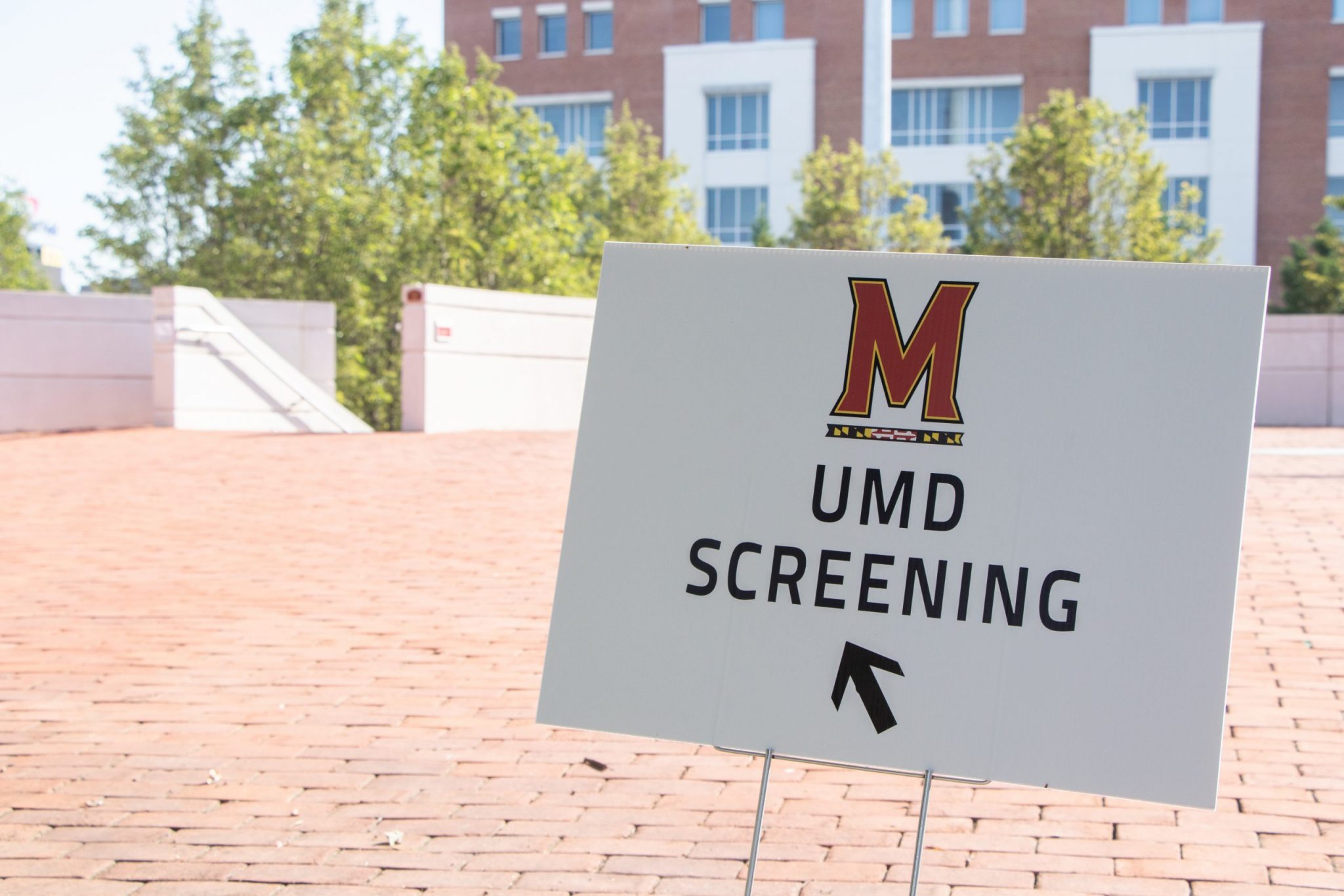As the University of Maryland buckles down to begin receiving students on its campus next week, an email sent to staff and faculty Thursday provided details on how the spread of COVID-19 will be tracked by the University Health Center and Prince George’s County’s health department.
Last month, the University System of Maryland announced that those planning to return in-person to a system institution are required to be tested for the virus no earlier than 14 days before their arrival. According to Thursday’s email, though, anyone who had a positive COVID-19 test in the past three months does not need to be tested.
The university has been offering free coronavirus testing to all campus community members every weekday since Monday, and it will continue to do so through Sept. 4. There will also be testing available Sept. 14-16. After that, testing will be offered biweekly, according to the email.
When the health center learns that someone has tested positive for the virus or is exhibiting symptoms of COVID-19, it will begin “early contact identification” steps to find those who may have had close contact with that individual, according to the email. These steps will happen either before or at the same time as official contact tracing efforts by the county’s health department, which is notified every time someone tests positive.
[UMD launches COVID-19 dashboard to track testing, spread on campus]
Anyone who tests positive will also receive a phone call from the county health department to see who else may have been exposed to the virus. According to the email, COVID-19 is mainly spread when people are in “close contact” with one another and an individual infected with the virus coughs, talks or sneezes, expelling virus droplets that are inhaled by another person.
The email also lays out examples of close contact, including living with a person and not keeping distant from them, or having an unmasked conversation in an office, less than 6 feet apart. However, according to the email, riding on an elevator with someone while wearing a mask and obeying the capacity limits would not be considered close contact.
People experiencing COVID-19 symptoms who test positive will be asked to stay home in self-isolation until it has been 10 days since they started having symptoms, they have been without fever for at least 24 hours without the use of fever-reducing medication and their symptoms have improved. Those without symptoms must isolate for 10 days after their positive test, according to the email.
The county will also contact those who have had close contact with a person who has tested positive and ask them to quarantine for 14 days starting from when they last had contact with the infected individual. The health department will not identify the person who potentially exposed them without that person’s permission, according to the email.
At this university, employees are responsible for letting their supervisor or University Human Resources representative know that they have received a positive test. They should contact the department’s leave management team for questions about leave eligibility, according to the email.



